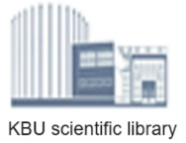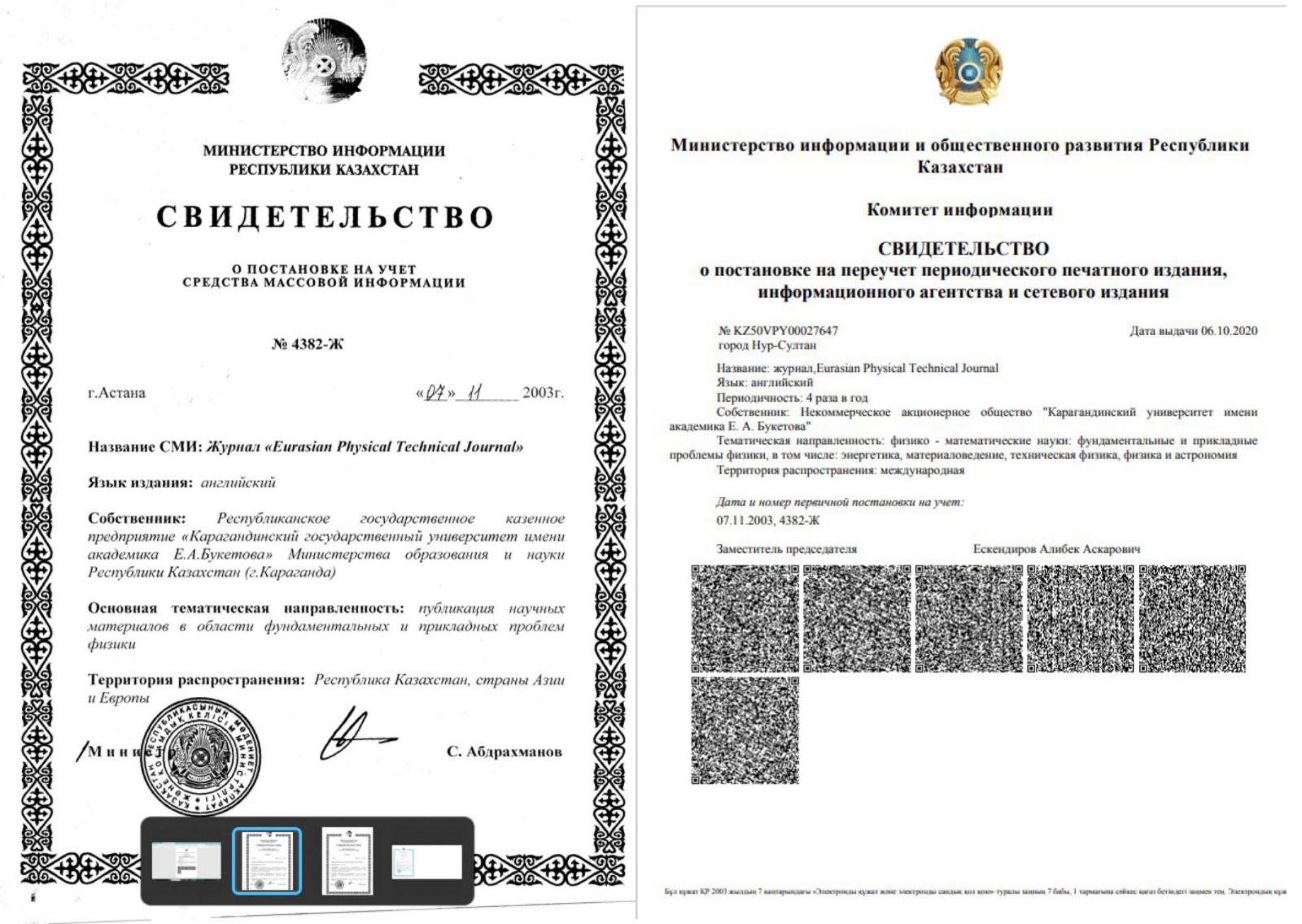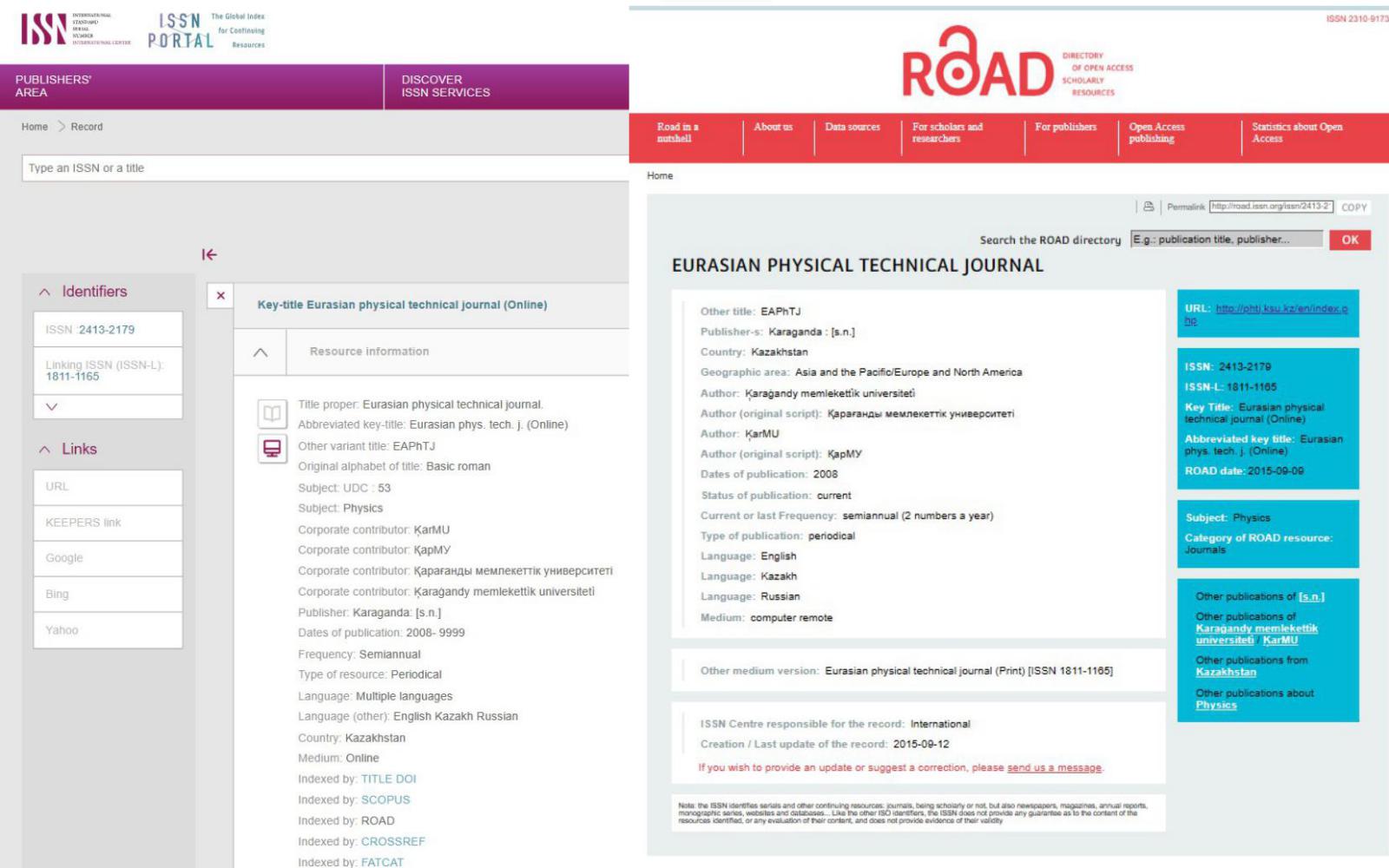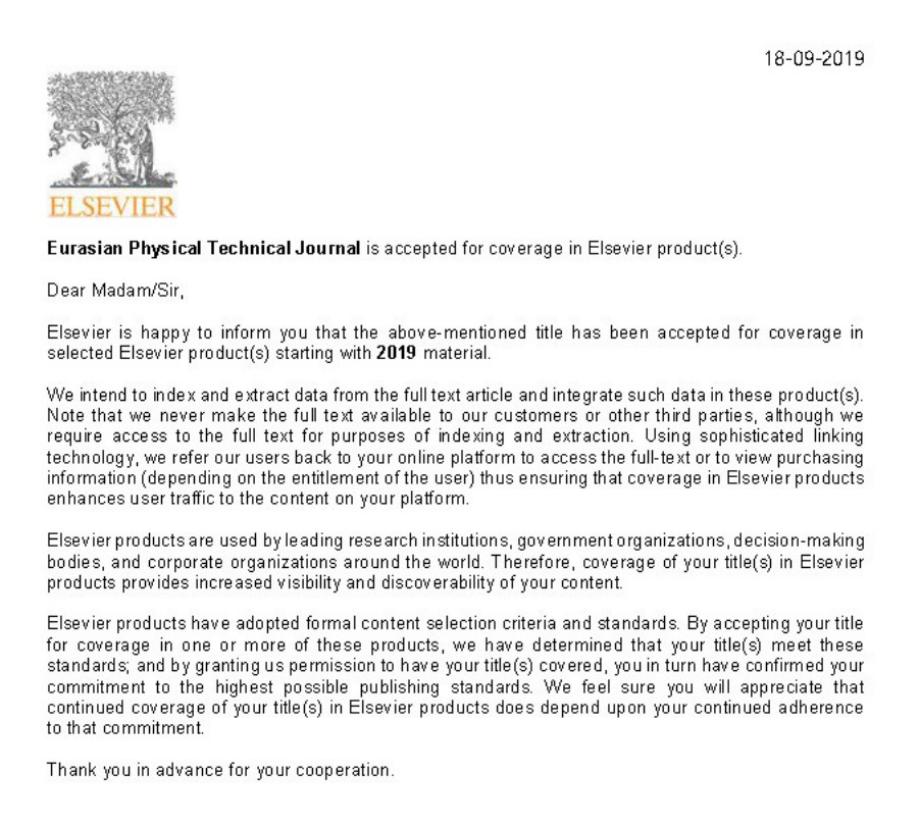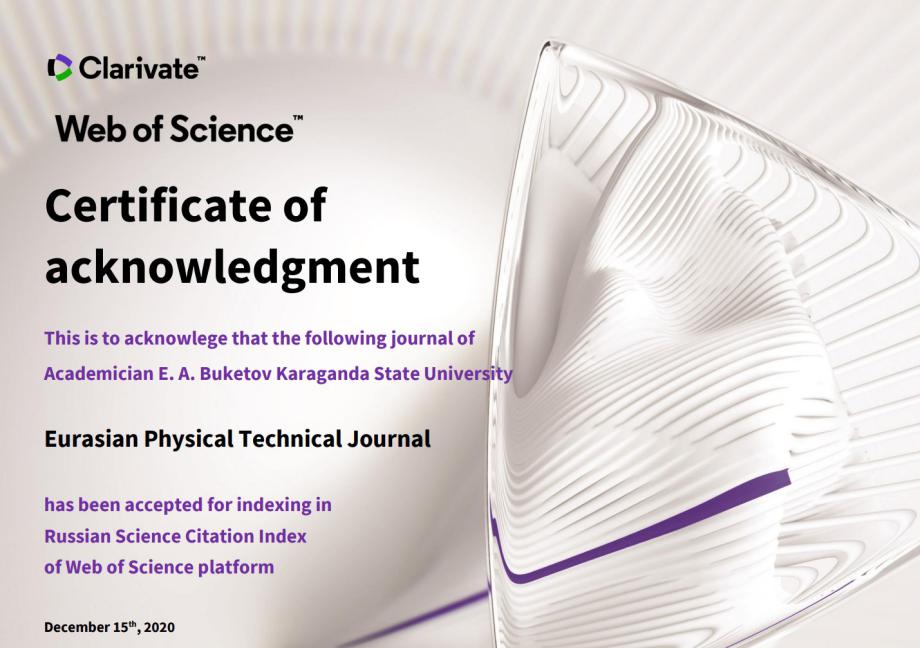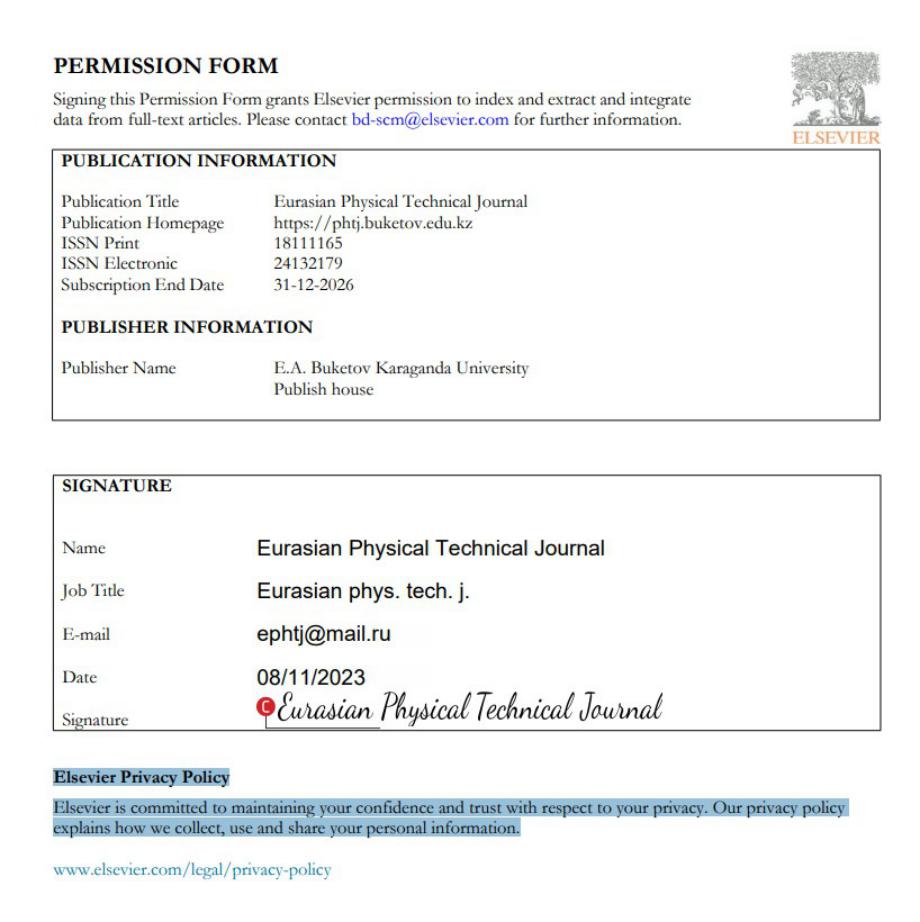Improving the heat resistance of polymer electrical insulation systems for the modernization of induction motors
DOI:
https://doi.org/10.31489/2021No1/34-42Keywords:
electrical insulation system, polymeric materials, heat resistance, induction motor, weight–size parameters.Abstract
"Ensuring high power, efficiency and reliability of induction motor operation while providing small weight–size parameters represents an up-to-date problem. One of the factors limiting the reduction of weight–size parameters when increasing capacities of induction motors is the failure of the insulation system. Therefore, there is a strong need for studying the issues of slot fill when designing an induction motor, taking into account an increase in the heat resistance class of electrical insulation systems. The purpose of the present research is to develop a polymeric electrical insulation system of increased heat resistance for the modernization of an induction medium-capacity motor to reduce weight–size parameters and to evaluate the possible savings of winding material. The paper deals with an analysis on the stator–slot fill for the induction motor. Modern conductor and insulation materials were selected. The necessary calculations for a medium–power induction motor of different heat resistance classes were performed. The usage of the proposed electrical insulation system was substantiated. The analysis shows the possibility of increasing the heat resistance of the polymer electrical insulation systems to save winding material for induction motors without reducing the specified quality level. "
References
"1 Muravleva O. Resource saving prospects based on accuracy theory. Proceeding of the Intern. Conference on Computer as a Tool. In EUROCON 2007. 2007, 4400413, pp. 1845-1850, doi: 10.1109/EURCON.2007.4400413.
Payuk L.A., Voronina N.A., Logvinenko A.A. Modernization of electric drive of compressor station. Bulletin of the Tomsk Polytechnic University. Geo Assets Engineering. 2019, Vol. 330, No. 3, pp. 73 – 83. doi: 10.18799/24131830/2019/3/165.
Muravleva O., Muravlev O. Power effective induction motors for energy saving. Proceedings of the 9th Russian-Korean Intern. Symp. on Science and Technology KORUS-2005. 2005, Vol. 1, No. 1507731, pp. 358-362. doi: 10.1109/KORUS.2005.1507731.
Abramov B.I., Ivanov G.M., Leznov B.S. Power saving by electric drive means in the town municipal service. Russian Electrical Engineering. 2001, Vol. 1, pp. 6 – 11.
Han P.-W., Chun Y.-D., Choi J.-H., Kim M.-J., Koo D.-H., Lee J. The study to substitute aluminum for copper as a winding material in induction machine. Proceedings of INTELEC. 2009, pp. 5352008.
Payuk L. A., Voronina N. A., Galtseva O.V. Energy Characteristics of Electric Drive of Oscillatory Motion at the Shock-Free Start. Journal of Physics: Conference Series. 2016, Vol. 671, pp. 012044.
Guastavino F., Cordano D., Torello E., Secondo G. Electrical aging tests on different kind of insulating systems adopted for induction stator motor. Proceedings of Conference of CEIDP. 2015, pp. 7352068. doi: 10.1109/CEIDP.2015.7352068.
Bonnett A.H., Soukup G.C. Cause and analysis of stator and rotor failures in three-phase squirrel-cage induction motors, IEEE Transactions on Industry Applications. 1992, Vol. 28, No. 4, pp. 921-937, doi: 10.1109/28.148460.
Chapman M., Frost N. Insulation systems for rotating low-voltage machines. IEEE International Symposium on Electrical Insulation. 2008, 4570323. doi: 10.1109/ELINSL.2008.4570323.
Hwang D., Lee K., Kim Y., Lee I., Lim T., Kim D. Accessing the insulation characteristics for stator windings of low-voltage induction motors for adjustable-speed drive applications. IEEE Industry Application Conference. 2003, Vol. 1, pp. 432-438.
Rehder R.H., Draper R.E., Moore B.J. How Good is Your Motor Insulation System. IEEE Electrical Insulation Magazine. 1996, Vol. 12, No. 4, pp. 8-14, doi: 10.1109/57.526942.
Fabiani D., Montanari G.C., Contin A. Aging acceleration of insulating materials for electrical machine windings supplied by PWM in the presence and in the absence of partial discharges. IEEE 7th Intern. Conference on Solid Dielectrics. 2001, pp. 283-286.
Fenger M., Campbell S.R., Pedersen J. Motor winding problems caused by inverter drives. IEEE Industry Applications Magazine. 2003, Vol. 9, No. 4, pp. 22-31, doi: 10.1109/MIA.2003.1206913.
Frost N., Chapman M., Bruetsch R. Considerations for rotating low-voltage machine insulation designs. IEEE Insulation. 2008, 4570397, doi: 10.1109/ELINSL.2008.4570397.
Shevchuk V.P., Muravlev O. P. The estimation of technical state and relibiality of electric machines in the process of operation. Proceeding of MTT. 2008, 4897500, pp. 73 – 76. doi: 10.1109/SPCMTT.2008.4897500.
Leuzzi R., Monopoly V.G., Rovere L., Cupertino F., Zanchetta P. Analysis and Detection of Electrical Aging Effects on High-Speed Motor Insulation. IEEE Transactions on Industry Application. 2019, pp. 1 – 8.
Grubic S., Aller J.M., Lu B., Habetler T.G. A survey on testing and monitoring methods for stator insulation systems of low-voltage induction machines focusing on turn insulation problems. IEEE Transactions on Industrial Electronics. 2008, Vol. 55, No. 12, pp. 4127 – 4134. doi: 10.1109/TIE.2008.2004665.
Lahoud N., Faucher J., Malec D., Maussion P. Electrical aging of the insulation of low voltage machines: model definition and test with the design of experiments. IEEE Transactions on Industrial Electronics. 2013, Vol. 60, No. 9, pp. 4147 – 4155. doi: 1109/TIE.2013.2245615.
Schemmel F., Bauer K., Kaufhold M. Reliability and statistical lifetime-prognosis of motor winding insulation in low-voltage power drive systems. IEEE Electrical Insulation Magazine. 2009, Vol. 25, No. 4, pp. 6 – 13.
Bohm F.R., Nagel K., Schindler H. A new generation of wire enamel for the production of magnet wires with outstanding corona resistance. Electrical Insulation and Electrical Manufacturing and Coil Winding Technology Conference. 2003, pp. 109 - 113.
Gedzurs A. Temperature protection methods of induction motor. Research for Rural Development, 21st International Scientific Conference Research for Rural Development. 2015, Vol. 1, pp. 258 – 263.
Ionel M., Stan M.-F., Virjoghe E.-O., Ionel O.-M. Algorithm for exact determination of three-phase induction machine parameters. Proceeding of International Conference on Systems. 2010, Vol. 1, pp. 636-643.
Boglietti A., Cavagnino A., Lazzari M., Vaschetto S. Preliminary induction motor electromagnetic sizing based on a geometrical approach. IET Electric Power Applications. 2012, Vol. 6, No. 9, pp. 583-592.
"


